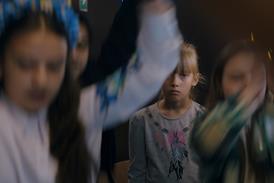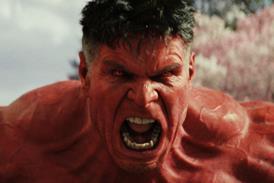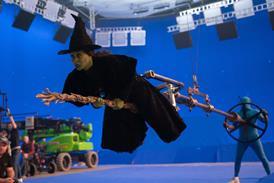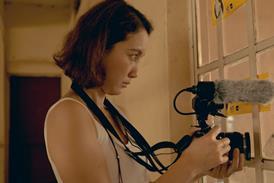Two years after Crouching Tiger, Hidden Dragon, the jury is still out on whether the film created a huge, global market for Chinese-language film.
However, several Asian companies are still working on the assumption that the film's international box office success managed to kick down numerous doors, and not just for new productions.
On December 5, Hong Kong-based Celestial Pictures will release the first batch of digitally re-mastered titles from the 760-title Shaw Brothers library via a slew of partnerships with video distributors across Asia. In order to combat piracy and parallel imports, the library will be released day-and-date over a five-year period in several Asian territories including Hong Kong, Taiwan, Thailand, Singapore, Indonesia and Malaysia. Celestial is also working on distribution deals for the US, China, Japan and Korea.
This ambitious undertaking, which Celestial claims is a first in the video industry, springs from a belief that there's strong demand, both in Asia and the West, for classic Chinese-language product.
"We actually bought the library before Crouching Tiger's huge success, because this is the world's largest collection of Chinese-language films and most of them haven't been exploited on TV or video," says Celestial CEO William Pfeiffer. "But the subsequent success of certain Chinese films, and the anticipation for movies such as [Zhang Yimou's] Hero and [Quentin Tarantino's] Kill Bill, which was partly inspired by the Shaw Brothers, demonstrates that there's increasing interest around the world for Asian content."
Celestial, which is backed by Malaysian media group Usaha Tegas, paid $61.6m (HK$480m) for the Shaw Brothers films, and an additional $15.4m (HK$120m) to cover the cost of restoration.
Some observers say this was a high price for a foreign-language film library. But then the language in question is spoken by over a quarter of the world's population and Celestial is banking on the Shaw Brothers name - which still echoes around the world 15 years after the studios ceased production - along with other factors such as the diversity of the library which spans several genres including martial arts, historical adventures, slapstick comedies and musicals.
To promote the video release of the first batch of titles, several were given a theatrical airing in Hong Kong last week, and played to packed houses, suggesting that consumer interest in the library is high, at least in its home territory.
However, Celestial isn't the only Asian company sitting on a potential Chinese-language goldmine. Regional broadcaster Star TV owns world rights in perpetuity to around 600 films produced by Hong Kong studio Golden Harvest (up until 1992) and two defunct Hong Kong production houses - Golden Princess and D&B.
Included in the library is most of Bruce Lee's work and the first three instalments of Jackie Chan's Police Story series and the Once Upon A Time In China series starring Jet Li.
Unlike the Shaw Brothers films, very few of which were released on video or shown on TV due to concerns over piracy, many titles in the Star library have already been licensed. But according to Peter Poon, general manager of Star's production and distribution arm Fortune Star, there are still a surprising number of titles that have yet to be properly exploited.
The company is now following Celestial's lead in putting together a series of partnerships with global video distributors and plans to release a raft of titles under the Fortune Star banner in the US and Asia next year.
"I wouldn't describe our library as 'classic' because many of the titles were produced in the 1980s and feature stars who are still popular today," says Poon. "The growing fame of stars such as Jackie Chan and Michelle Yeoh in the West has aroused interest in their earlier, Hong Kong-produced movies. As a result, people are knocking on my door."
Poon adds that the company is unlikely to opt for day-and-date pan-Asian video releases, as not all the titles are suitable for all territories. Rather, its anti-piracy strategy revolves around releasing two versions of each title - one with no frills at a cost that will compete with the pirates, and another that is more expensive and aimed at collectors. "We'll target each territory carefully," says Poon. "For example, a film such as Sex And Zen is not going to go down well in Malaysia."
Warner Bros also owns a chunk of the Golden Harvest library - from 1992 to 1999 - which it acquired for $25m (HK$195m). Highlights of this portion of the library (170 titles both produced and acquired by Golden Harvest) include Rumble In The Bronx and Thunderbolt starring Jackie Chan and several films from leading Hong Kong directors Peter Chan and Tsui Hark.
Again, some of the hottest titles in the library are currently licensed, but Warner has already started to roll out those that are available through its international video arm.
Meanwhile, Singapore-based studio Cathay has also been dusting down its library, although its focus has been on the main Chinese-language markets of Hong Kong, China, Singapore and Taiwan. The company owns around 150 titles produced in Hong Kong under the banner of Motion Picture and General Investment (and later as Cathay Organisation) from the 1950s until 1971, when the studios were sold to Golden Harvest. The films have been digitised and restored to US broadcasting standards, and several packages have been sold to broadcasters and video distributors in Singapore and Hong Kong.
"I believe that, with proper marketing, classic Chinese films still have a market," says Cathay chairperson Meileen Choo. "The films made by Cathay and the Shaw Brothers marked a particular period in the history of Hong Kong cinema, and there's still interest from Chinese-speaking territories and countries that have Chinatowns. You could call them the Chinese-language equivalent of classic MGM."



















No comments yet